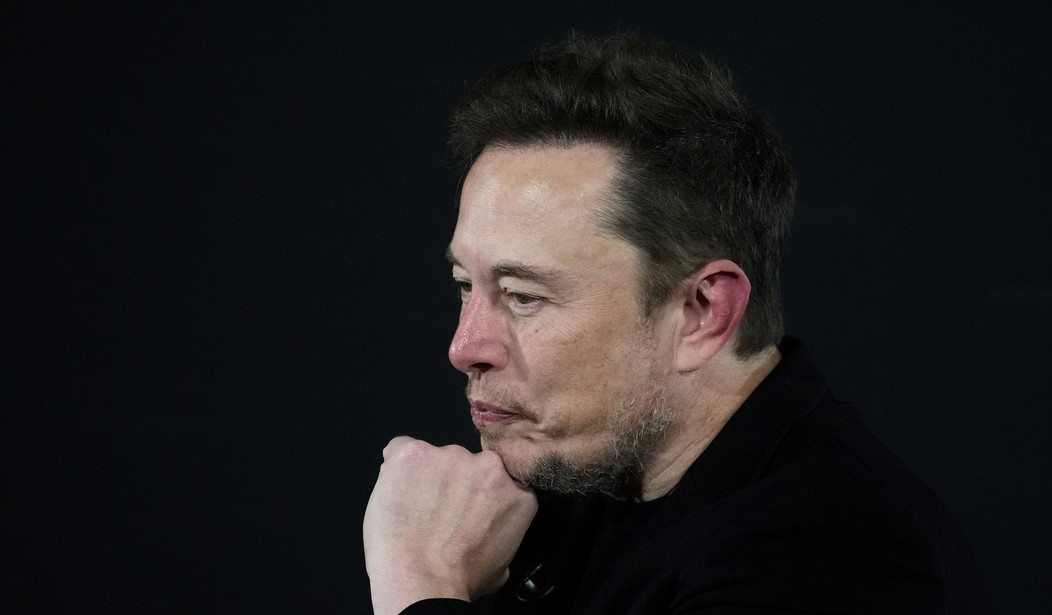Billionaire entrepreneur Elon Musk has made many contributions to civilization in his barely fifty years on this planet. His technological advances in various fields of travel - including into space - have been revolutionary. He's putting chips in the brains of paralyzed people allowing them mobility and enhanced communication. And, of course, his Tesla automobiles have become a high-end symbol of prestige. (We'll leave aside for the moment how Twitter has been working out lately.) But one of the really ubiquitous and also controversial areas he's engaged in is that of internet access and satellite communications using his Starlink system. He's been installing systems all across the world, including in Ukraine where he set up communications for the Ukrainian military and paid for it all himself. But the Ukrainians weren't the only people to benefit from such a donation. A remote, rarely contacted indigenous tribe in the Amazon rainforest known as the Marubo was gifted with a Starlink system last September, potentially opening their access to the rest of the world. Unfortunately, according to tribal leaders, this gift hasn't worked out as many hoped it would. Nine months later, exposure to the internet - particularly social media and pornography - has reportedly ripped the tribe apart at the seams. (NY Post)
A remote tribe in Brazil has become bitterly divided nine months after gaining access to satellite internet via Elon Musk’s Starlink service.
The 2,000-member Marubo tribe, who live along the Ituí River deep in the Amazon rainforest, were connected to the World Wide Web last September after 20 antennas were donated to them by American entrepreneur Allyson Reneau...
But the internet is already posing problems for the Marubo, with many youngsters in the tribe now hooked on social media and pornography, much to the alarm of elders.
“When it arrived, everyone was happy,” Tsainama Marubo, 73, told The New York Times. “But now, things have gotten worse.”
Before anyone starts chuckling about this, we probably shouldn't because this is a rather sad story. And as I'll discuss below, this tribe will likely serve as a test case in the larger debate over the relative benefits that the internet has brought mankind. As for the Marubo people, it's not as if Starlink didn't bring some significant benefits, at least initially. They established direct communication with emergency service centers in the region who they could contact in the event of a health crisis such as a venomous snake bite. Lives have reportedly been saved that way. Also, some young people were able to expand their horizons and seek out educational and professional opportunities in more distant communities through the help of sponsors.
But soon, negative effects were being noticed, particularly by the tribal elders. Anthropologists describe the Marubo as "a chaste people," long steeped in conservative traditions, particularly when it comes to the subject of sex. They don't even approve of kissing in public. But after nine months of exposure to the internet, the elders report that some of the younger men have begun sharing porn videos in chat groups and they are seeing more "sexually aggressive" behavior among them.
The elders also complain that their young people have become "lazy" and adopted "the ways of the white man." Too many prefer to be on their phones much of the time instead of hunting, fishing, or gathering food. This has been detrimental to the tribe's overall well-being. The elders also feel that the young people quickly became so absorbed in their phones that they fear the tribe's next generation will lose all of their ancestral knowledge, which is passed down orally.
As I suggested above, the Marubo may be a perfect test case in terms of what the advent of internet technology has meant for mankind and what it will mean going forward. Many of us who were around for the first advent of the internet era in America recall how it snuck up on us rather slowly, moving from dial-up modems to early cable access, from America Online to early search engines, ramping up in speed and breadth until we have the mess we see today. For the Marubo people, they accelerated from zero to a full-blown dumpster fire in just nine months.
I have long argued that the internet will probably be the worst thing to ever happen to humanity, at least until Artificial Intelligence wakes up, and I realize I'm saying this as someone who has made his living publishing and editing internet content for well over a decade. If the internet had permanently remained just a tool for rapid electronic communications and a place to build archives of useful information that could be quickly searched, it would have been a powerful tool that accelerated our advancement. But it was never going to be that simple. The internet was too perfect as a platform for mass video gaming that was addictive and saw people wasting huge amounts of time in unproductive activity while building "relationships" with people they would probably never meet.
Social media has brought out so much of the worst in society, clumping people into increasingly isolated tribes and cutting us off from the human beings in the world around us. Anonymity emboldens certain personality types to launch brazen attacks on others that they would never dare dream of if they were face to face. It's almost certainly far too late, but if we're ever sifting through the rubble of our previously grand civilization, take a moment to remember the Marubo tribe. They were the canary in a coal mine that was already on fire.








Join the conversation as a VIP Member